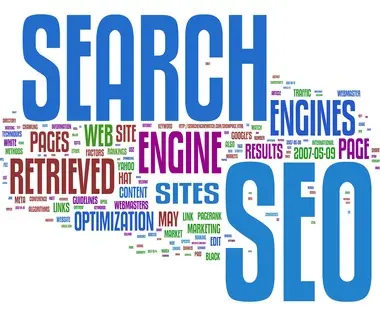Why Many Top Ranked Pages Contain No Content
If content is so important, why do we see pages ranking highly in search results with no more than a sentence on them?
While content is a huge factor in a page’s rank, it is not the only factor. More words on a page can help search engines determine if the page is relevant to a user’s query, but it is not crucial. The position at which a page ranks depends on several different variables such as:
Brand Strength: If you do a search on “chocolate,” Ghirardelli is one of the first results. Their home page is mostly graphics aside from the navigation bar. However, their brand is so large that the need for 500 words explaining what they sell and why their chocolate is the best is simply not as necessary as it is for a small or start-up chocolatier.
Natural Links: For many brands—especially B2C products and services—links come naturally from consumers wanting to share their experience and point to a specific page through branded anchor text. This includes blogs and blog comments, forums, and social media. A company with an impressive backlink profile is going to have stronger search presence than those with fewer or lower quality links.
Quality of Backlinks: After Google Penguin’s latest update, poor quality links are truly being thrown to the wayside to eliminate spam and black-hat SEO practices. Article directories, social bookmarking sites, blog rolls, and other types of links with little or no value no longer count towards a page’s rank. A highly ranking page will have a backlink profile that is distributed across multiple platforms and domain types.
Content Value: A page that has a small amount of unique content may initiate a longer discussion among readers. This falls into the relevance factor and may trigger the page to be pushed higher in search rankings. A page with 1,000 words of content with low authenticity does not benefit any more than a page with 100 words of valuable, useful information. As Moz puts it, “The best content is that which does the best job of supplying the largest demand.”
Other items to consider:
Power of Internal Pages: Companies often do not want to add content to their home page in fear that it will detract from the overall design. This is fine as long as they are implementing a beefy link building campaign and optimizing deeper pages of the website with content, meta tags, H1 tags, image alt tags, etc. Internal linking also helps by using anchor text to refer to other relevant pages on the site. The key is to use internal linking naturally where it makes sense—if links are dispersed throughout the page with no rhyme or reason, search engines will determine this as spam.
Product Listings: Product listings count as content (which is why it’s so important to optimize that inventory!) even when there is no other content on a product results page. A product page with a keyword-rich description, optimized images, and positive reviews more than likely will rank higher than a page containing an intro paragraph and image gallery.
Keyword Competitiveness: Make sure your expectations are realistic for the keywords you wish to rank for. Targeting the term “shoes” will be much more competitive than “men’s dress shoes.” It’s easier to look at your competitors’ link profiles for the second query and rank higher even if you are missing a component like content on that given page.
Above all else, focus on your website being user friendly and offering valuable information that makes people want to share and link to!


